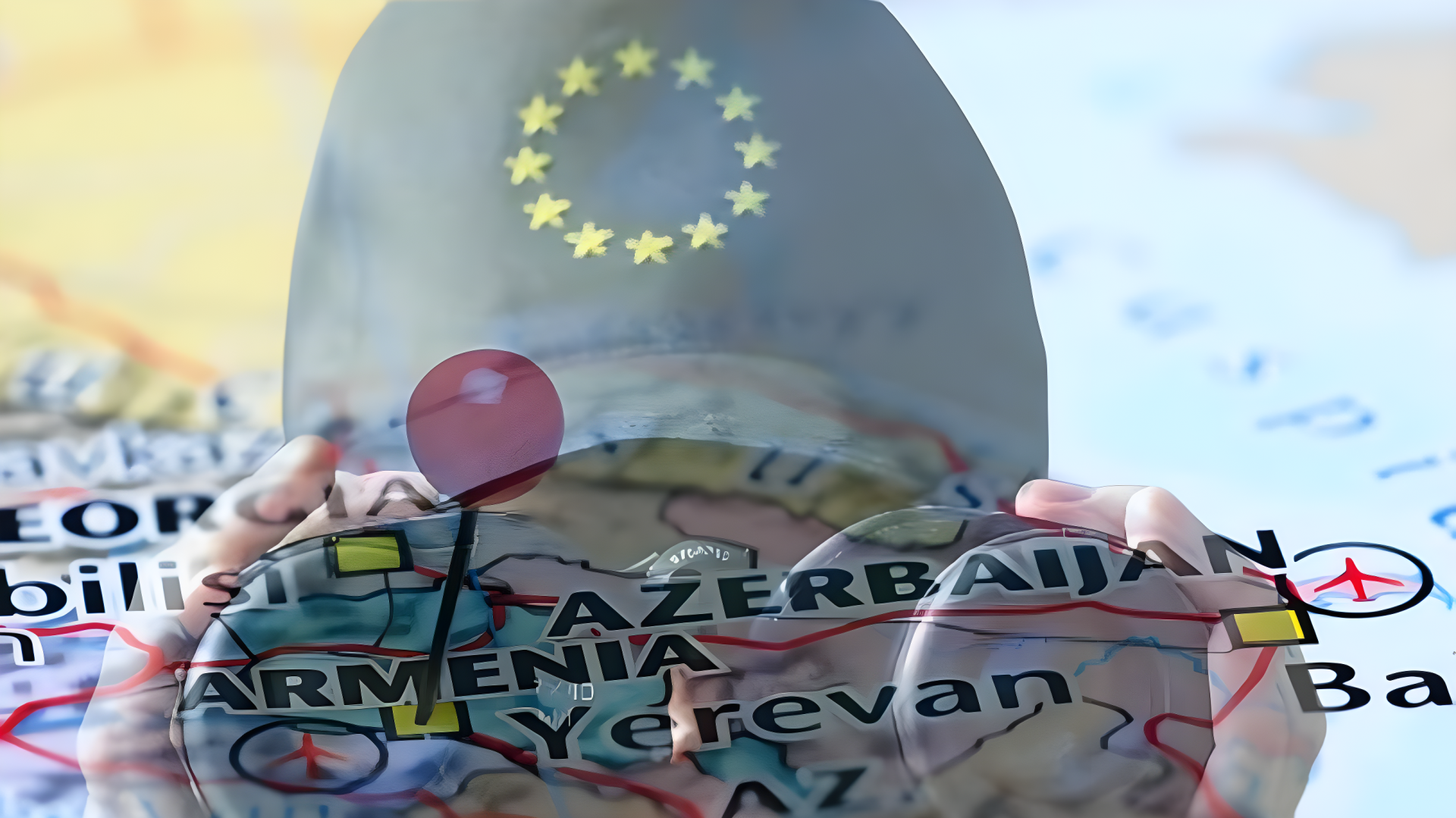Europe’s mission in Armenia keeps S Caucasus trapped in mistrust

The South Caucasus once again finds itself under the scrutiny of outside powers eager to define the terms of its peace. What was meant to be a fragile process of reconciliation between neighbors has increasingly become a stage for geopolitical performance, where Western missions operate not as mediators, but as instruments of influence. The European Union Monitoring Mission in Armenia (EUMA), in particular, has become a case study of how "peacekeeping" can blur into political patronage.
Armenian Prime Minister Nikol Pashinyan’s statement on November 4 at the Orbeli Forum 2025, Building Peace and Multilateral Cooperation, reignited debate over the role of external actors in the region. Pashinyan noted that no substantial changes are expected in the activities of EUMA until a peace treaty is signed and formal interstate relations with Azerbaijan are established.
For context, the EU Mission in Armenia comprises around 200 personnel from 25 EU member states, as well as Canada. According to its leadership, these observers "patrol the Armenia-Azerbaijan border day and night to monitor security."
In essence, EUMA’s claim is misleading. Azerbaijan has never attacked Armenia — nor even contemplated doing so. The opposite has long been true. Against this backdrop, the decision to "postpone" the mission’s withdrawal until after the peace treaty’s ratification raises an obvious question: Why is Yerevan so intent on keeping European observers on its border, despite Azerbaijan’s explicit opposition?
Baku’s objections are both specific and justified. From the outset, it has warned that EUMA is not a neutral mechanism but a political tool. The mission arrived in Armenia without Azerbaijan’s consent, and key information about its personnel was withheld — aside from assurances that they were "unarmed." Operating close to Azerbaijani territory, the mission often uses minor incidents to legitimize its presence, ensuring its own indispensability.
When the EU deployed the mission in early 2023, the stated goal was to "stabilize" the Armenian–Azerbaijani border and reduce tensions. Essentially, it aimed to enhance Western strategic visibility in Armenia, gather intelligence, and maintain influence in a region historically outside Brussels’ control. What began under the banner of "peace" quickly revealed itself as part of a broader geopolitical contest.
From the arming of Armenia to openly hostile resolutions in the European Parliament, from provocative statements by French officials to selective reports that ignored Armenian provocations, neutrality was never part of EUMA’s operating code. Instead of confidence-building, it deepened mistrust and slowed momentum toward genuine peace.
Meanwhile, the region has advanced on its own. Since 2024, Baku and Yerevan have moved forward through direct dialogue, reached agreements on border delimitation, and restored communication lines without any Western mediation. Progress has come not from observation, but from ownership.
EUMA’s structure further erodes its credibility. Despite its "civilian" label, many of its staff are ex-military or intelligence officers. Its reports routinely echo the Armenian narrative while ignoring documented provocations. Without a UN mandate, the mission’s legitimacy is political — not international.
In practice, EUMA serves two roles. First, it sustains artificial tension to justify its indefinite presence. Second, it seeks to entrench European political influence in the South Caucasus under the guise of monitoring. This approach is less about "peacebuilding" and more about positioning.
But the region is changing, and so is its legal reality. The initial peace deal, which both sides have already discussed, makes the mission incompatible with the new framework. Article VII explicitly prohibits the deployment of any third-party forces along the border and requires that stability be maintained through bilateral confidence-building mechanisms. That clause alone makes the continued presence of EUMA both unnecessary and legally contradictory.
As the proverb goes, "A liar keeps his witnesses handy" — and Yerevan’s witness, EUMA, stands ready. Though presented as impartial, the mission’s alignment with Armenian narratives has made it a participant rather than an observer.
Europe’s influence in the South Caucasus cannot be dismissed, but its credibility depends on balance. By turning a blind eye to Armenian provocations while amplifying criticism of Azerbaijan, the EU undermines both trust and diplomacy. What was once framed as a peace initiative now risks becoming a symbol of hypocrisy. Both sides have shown that it is possible to reach a common agreement on the path to peace without the need for a mediator. The main solution now is to take official and serious steps toward formalizing this agreement. Otherwise, both sides move on to the side of criticizing each other throughout the process, and if this leads to "word wrestling," this loophole would not see the end of it.
The South Caucasus does not need supervisors; it needs sincerity. The success of future peace depends not on imported oversight but on mutual recognition and regional confidence. If the West truly seeks stability, it must choose fairness over favoritism and dialogue over dependency.
Here we are to serve you with news right now. It does not cost much, but worth your attention.
Choose to support open, independent, quality journalism and subscribe on a monthly basis.
By subscribing to our online newspaper, you can have full digital access to all news, analysis, and much more.
You can also follow AzerNEWS on Twitter @AzerNewsAz or Facebook @AzerNewsNewspaper
Thank you!

